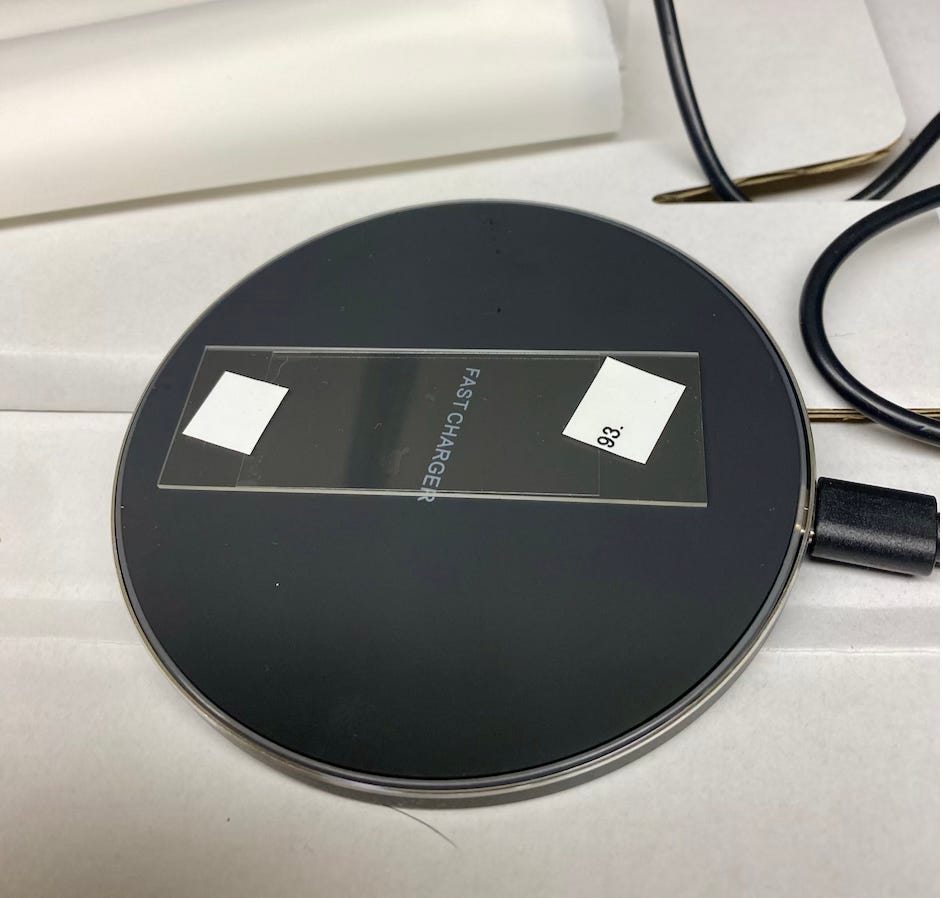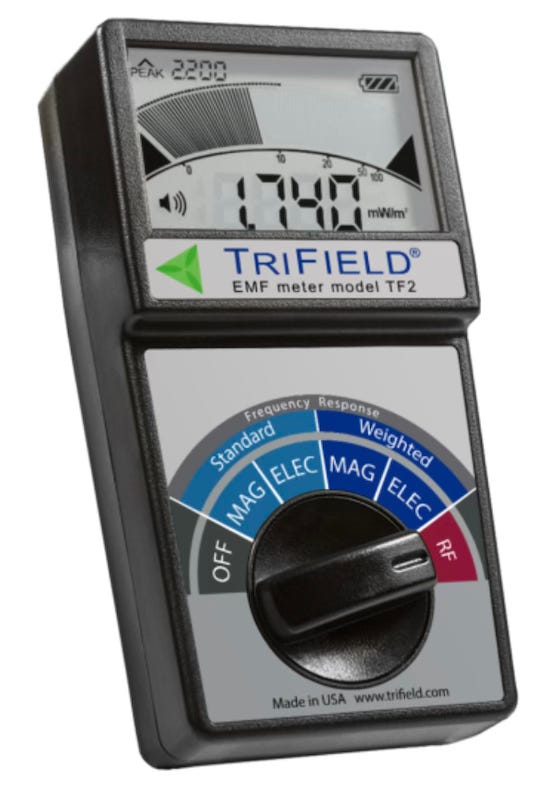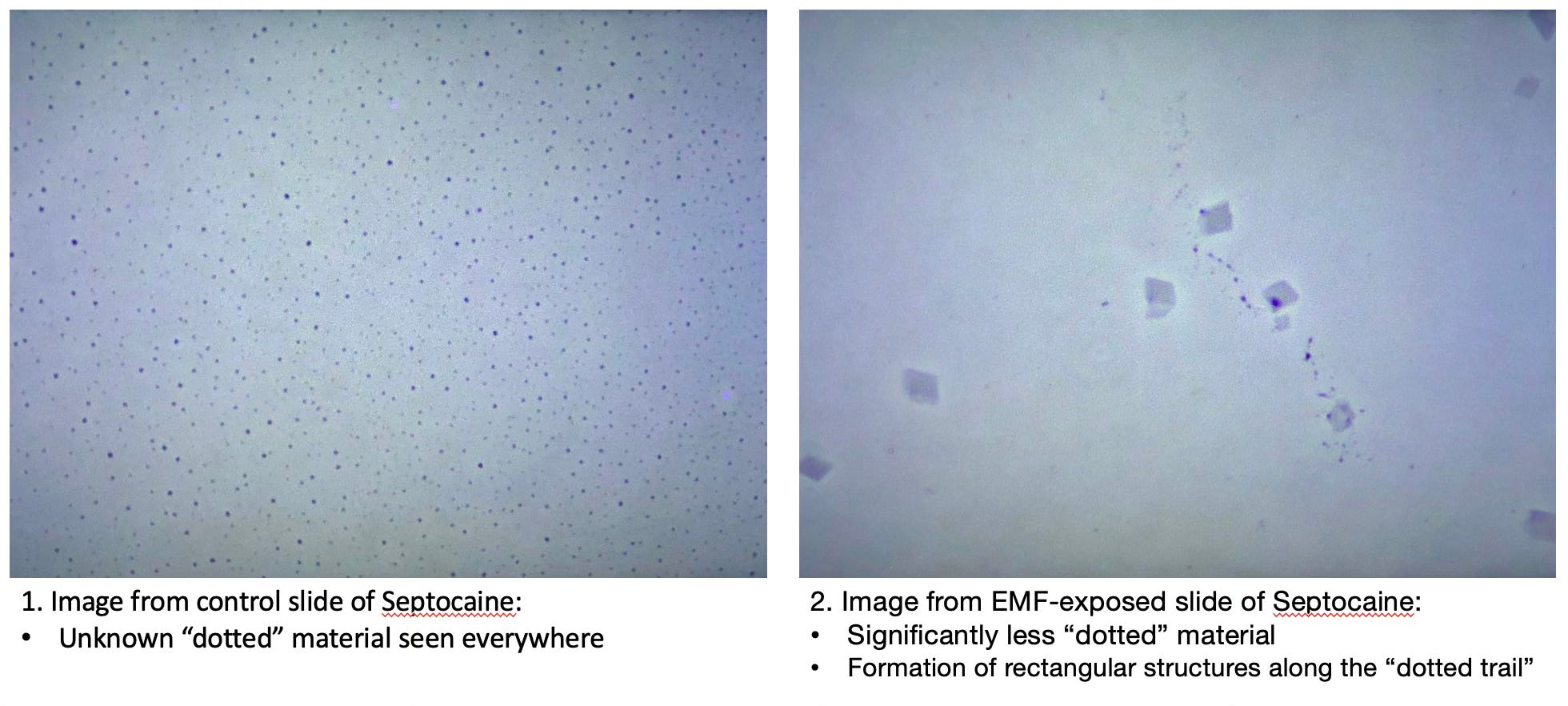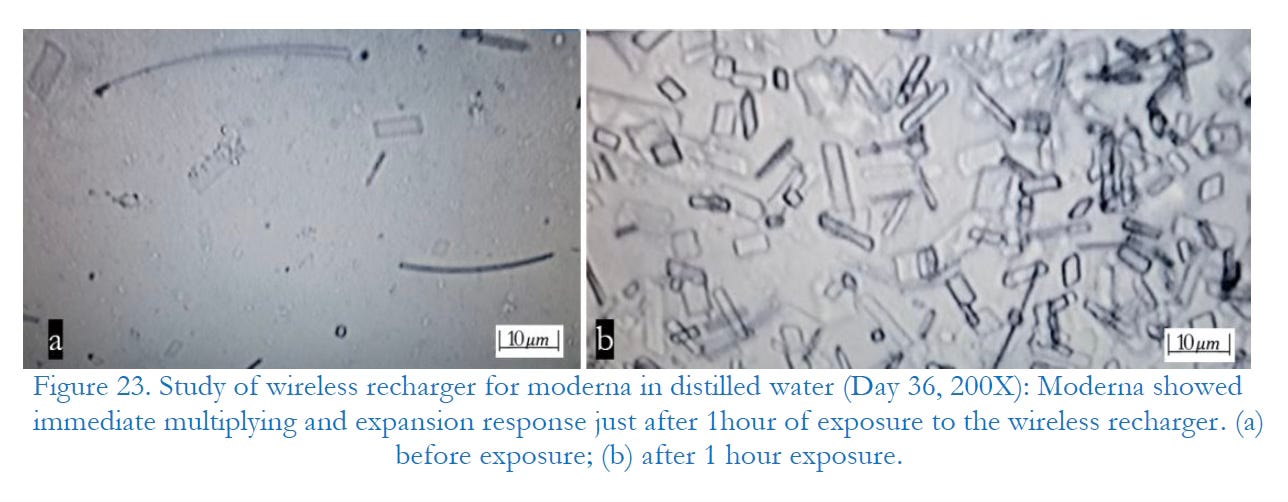Demonstrating Self-Assembly of Rectangular Structures in Dental Anaesthetic Septocaine Following Exposure to Low Frequency Radiowaves
Independent Confirmation of Findings by Lee & Broudy: Presence of Undeclared EMF-Sensitive Compounds in Injectable AnestheticDemonstrating Self-Assembly of Rectangular Structures in Dental Anaesthetic Septocaine Following Exposure to Low Frequency Radiowaves
If you have not seen 2024 paper by Lee & Broudy (including Response to Critics) on the topic of Self-Assembly of Artificial Constructs in Injectable modRNA Materials published in peer-reviewed IJVTPR (International Journal of Vaccine Theory, Practice, and Research), you’ve been living under the rock. Despite alternative hypotheses of the critics that the artificial structures observed in the samples “arise from lipid nanoparticles and cholesterol ingredients”, critics went mute on the topic of Unexplained Proliferation of These “cholestrol-derived” Structures in Response to EMF. EMF exposure “was conducted in the form of 1 hour exposure of the sample to a wireless charger.” The reason experts were tong-tied about this phenomenon is quite obvious. This Proliferation falsifies the cholesterol hypothesis since cholesterol doesn’t form rectangular structures under EMF exposure. The use of wireless charger is a clever invention. It’s practically a household item used for charging smart phones and other smart devices. Typical frequencies utilized in Wireless Chargers are in the the range of 87 to 205 kHz. This range belongs mostly to Low Frequency Radio Band. Presence of self-assembly of novel artificial constructs is not limited to modRNA materials. Structures similar to the the ones found in Moderna product have been found in multiple injectable pharmaceuticals, including local and dental anesthetics as described elsewhere, and by multiple researchers. The present experiment is set to investigate the effect of EMF exposure on Dental Anesthetic Septocaine (product of Septodont USA). Two slides were prepared from Septocain: one control slide control, and the second slide which was placed on active wireless charger for one hour. Emission of EMF was confirmed using TriField EMF Meter Model TF2 in the beginning, middle and at the end of exposure. The following images were collected from control slide (no EMF),1 hour after slide preparation, using phase-contrast microscopy (x100 magnification), using random field method: 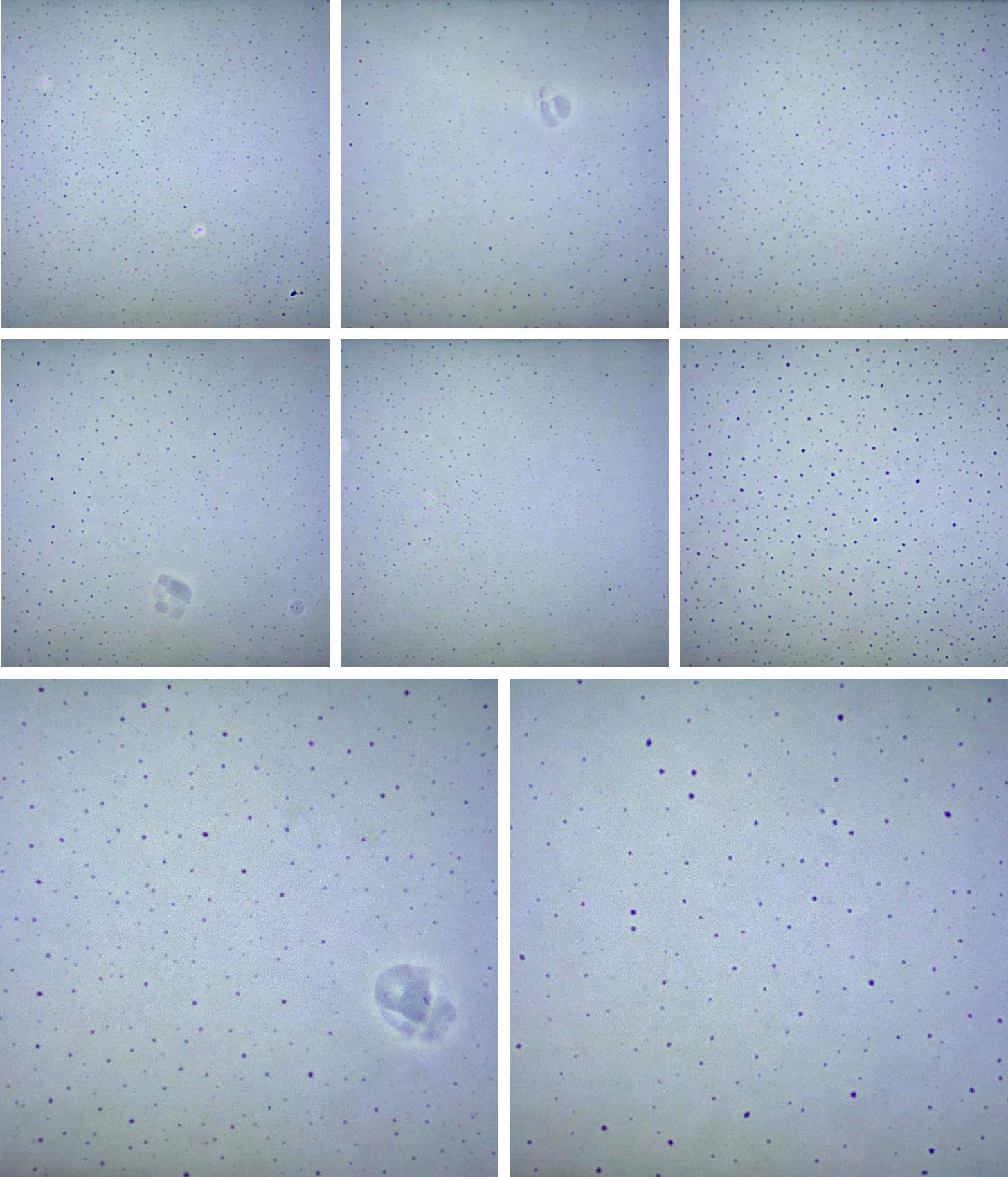 The images below were collected from the slide of Septocaine following EMF exposure for 1 hour: 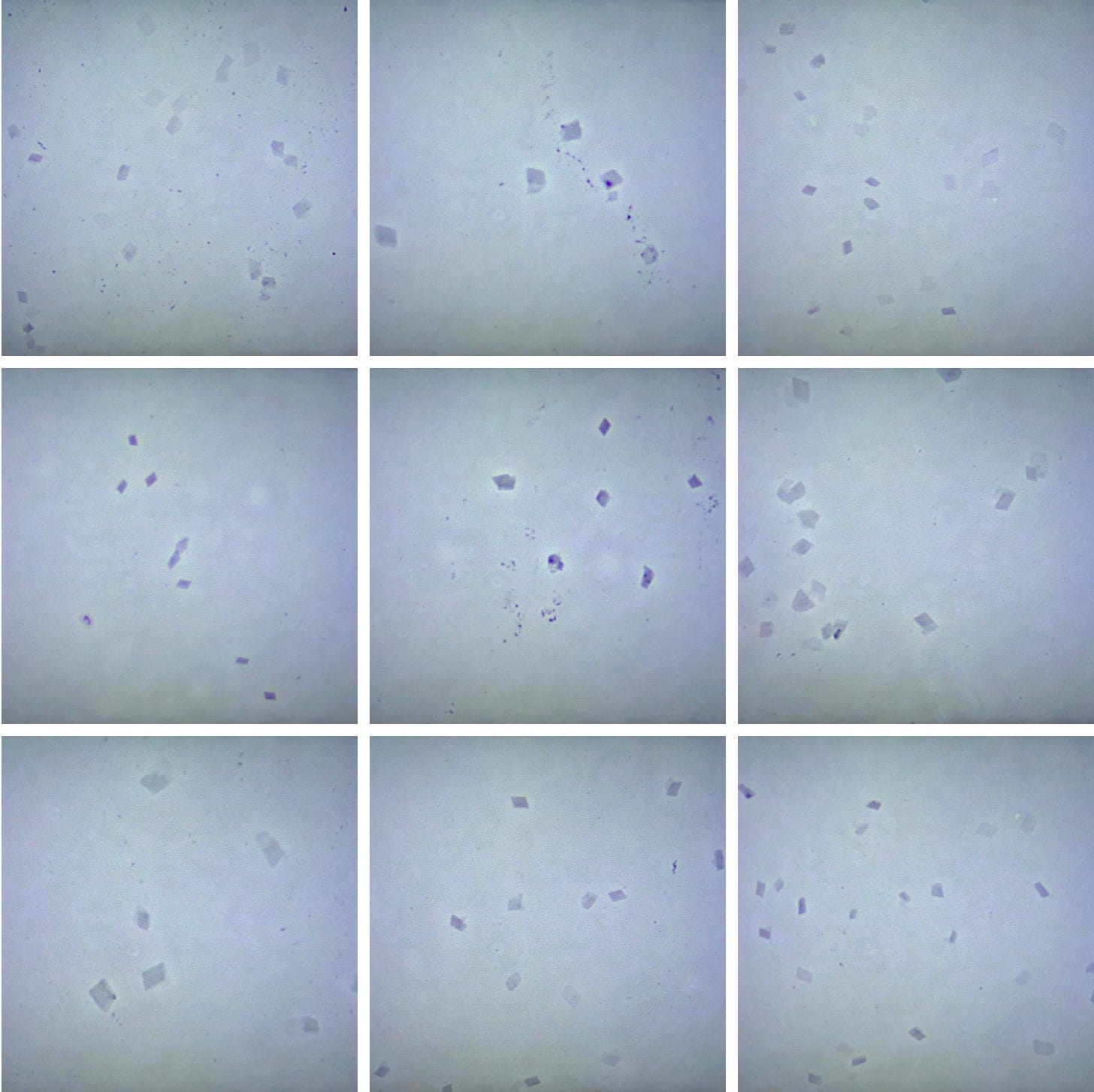 Discussion and Conclusion: Comparison of images collected from two slides of Septocaine (control slide and EMF-exposed slide, phase contrast, x100 magnification) suggests that under EMF exposure, Rectangular Structures of unknown composition are formed in the material. These structures were not observed in the controls slide at the same time mark following slide preparation. It is notable that in the control slide, the background is filled with dots (not quantum dots!) of unknown material, while in the EMF-exposed slide, the dotted background is not easily visible, suggesting that the rectangular artifacts are formed from the “dotted” compound. Also, in one of the images, rectangular structures are formed along the trail of the dotted material, supporting the latter proposition: In Conclusion, present experiment provides independent confirmation of findings by Lee & Broudy, 2024 (Figure 23 in the article): While Lee & Broudy investigated injectable modRNA material, the present study was conducted using dental anesthetic Septocaine. The experiment demonstrated the presence of undeclared EMF-Sensitive compound(s) in the sample. These finding are alongside the forming consensus among researches investigating this phenomenon that the undeclared (likely nano-micro) technology sensitive to (and perhaps guided by) EMF is widespread in injectable pharmaceutical products beyond so-called vaccines.
|

